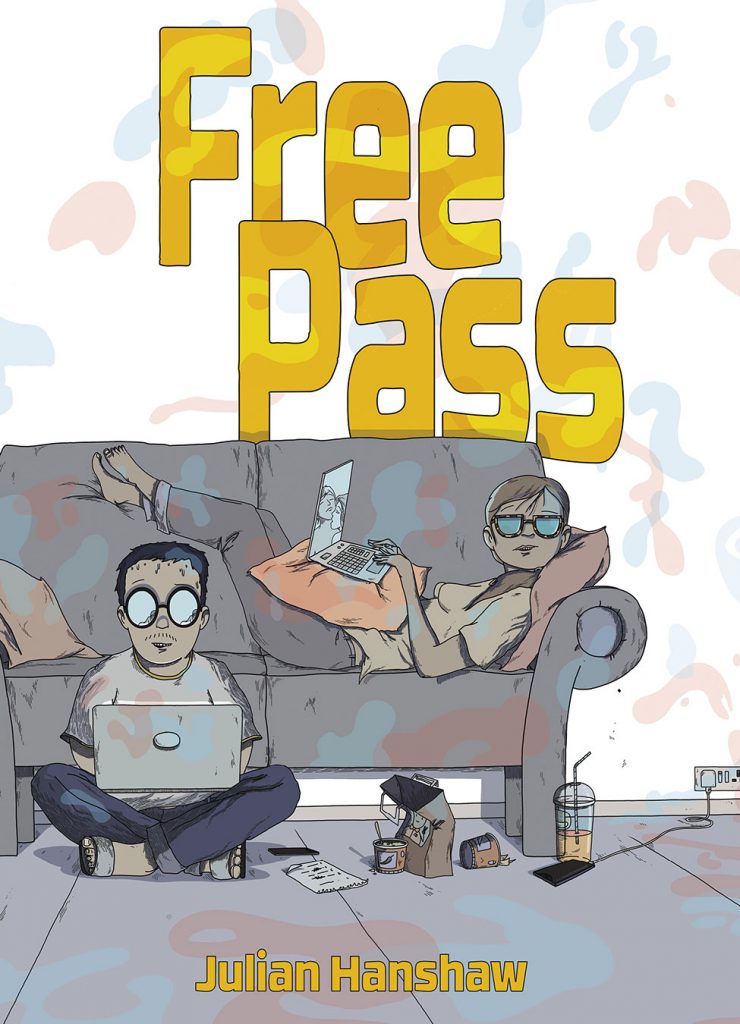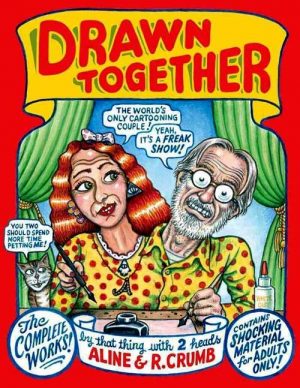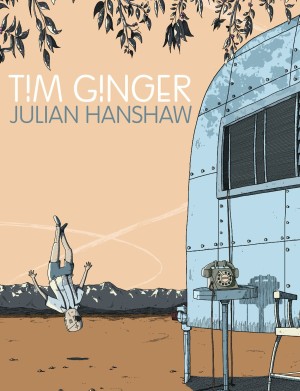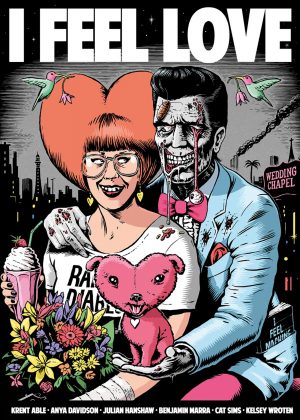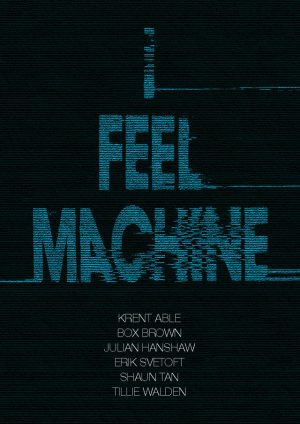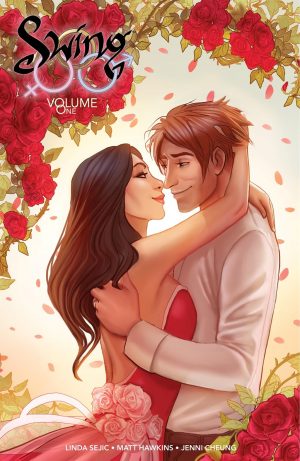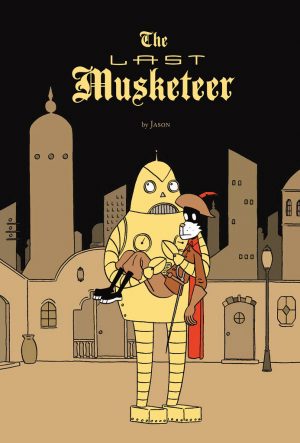Review by Graham Johnstone
In Julian Hanshaw’s impressive and varied CV, Free Pass follows the anthologies (co-edited with Krent Able) I Feel Machine, and I Feel Love, and combines, or let’s say ‘couples’ their themes.
Released in 2022, it’s an ambitious snapshot of how technology is changing our world. Of course that could apply to any book from the last, say, 150 years, but given the timescale to pitch, produce and publish a graphic novel, Free Pass is impressively topical.
It starts boldly with the night-time exterior of an isolated clapboard house, illuminated only by some large screen porn, and a conversation that turns out to be about prospective swinging partners. This introduces Huck and Nadia a youngish couple, trying to acknowledge and explore personal desire, while juggling that with commitment to each other. Their tolerant, affectionate relationship is the heart of the book. Their best prospects for expanding their horizons, are Piper, a colleague of Huck’s and her boyfriend Ali, a company exec, and supposed friend of Huck. Talk turns to lists of people each may have sex with without recrimination, which is the Free Pass of the title. It’s hardly a new idea, but captures tensions of freedom and responsibility that Hanshaw explores at interpersonal, organisational, and political levels.
Huck works for fictitious social media company Abrazo, where he leads a team trying to manage election coverage of the impending, and high stakes election. The days are counted down on splash pages showing an arena, being prepared for an election event. This forms the tense backdrop for the characters negotiating their work, domestic realities and personal fantasies. The candidates are fictitious, and no year or country is specified. Perhaps it’s best ambiguous, enabling readers to overlay their own high stakes election.
The story develops well as personal and political issues play out amongst a handful of characters. Ali loans Huck an AI sex-bot, and programmer Nadia, hacks its functionality, to their mutual and individual, delight. The question is: have the characters’ feelings caught up with the technology?
Hanshaw is a skilled writer, able to weave together character, theme and story into dramatic scenes, and leave room for the reader to interpret. When Piper invites Huck to lunch, he (and we) are left wondering if she’s seeking a colleague, friend, illicit lover, or rebel ally. Similarly, a lunch with company exec and supposed friend Ali, highlights the pervasiveness of hierarchy into the social sphere, best exemplified by Huck’s changing his order in response to Ali’s (pictured, left). This is mirrored in a later scene of Huck at lunch with Nadia, when he can finally order what he really wants. Throughout, the dialogue is natural and economical with convincing neologisms and tech speak.
Hanshaw’s art is not the most elegant around. His figures are basic, and his inking scratchy and faltering, but he’s strong on the essentials of storytelling and expression. Prioritising speed for polish is a sound choice on this highly topical book. His colours range from diverse flesh tones to the cold blue/grey of the machines, elevating the art.
The overall result is a fascinating exploration of freedom and responsibility in the personal and public spheres, well played out through believable characters, and smart dialogue. The tech will change, but relationships less so, meaning Free Pass will still be worth re-reading in five years, or ten or twenty. Of course, there’s no simple conclusion or moral to the election story, though the epilogue illustrates one person changed.
